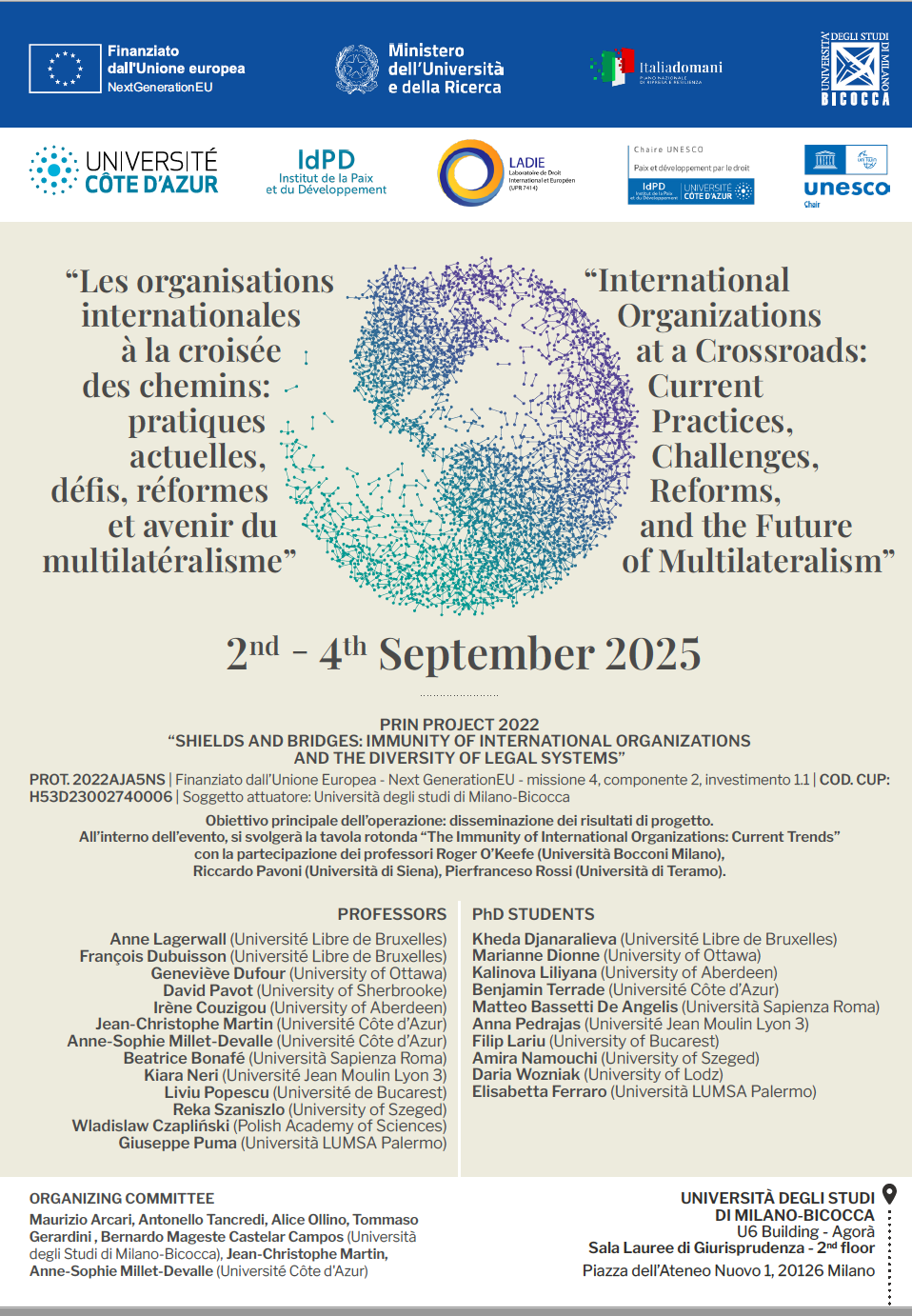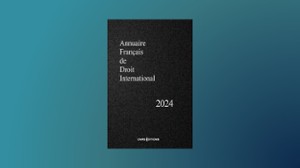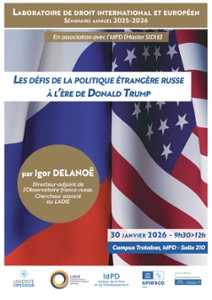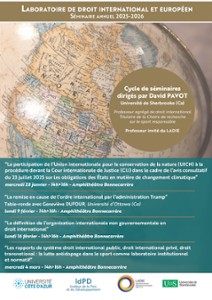Summer school 2025 in International and European Law: International Organizations at a Crossroads: Current Practices, Challenges, Reforms, and the Future of Multilateralism (organisée à Milan par le LADIE, l'IdPD et l'Université Milano Bicocca)
- IDEX
- International
- Partenariats
- Recherche
du 2 septembre 2025 au 4 septembre 2025

In recent years, the role and perception of international organizations have undergone significant transformations. While their importance in addressing global challenges has expanded, so too have criticisms of their effectiveness, legitimacy, and resilience in an evolving geopolitical landscape.
On one hand, the proliferation of international organizations reflects a growing recognition of the need for coordinated multilateral responses to transnational threats, such as terrorism, pandemics, climate change, and geopolitical instability. The establishment of new institutions—such as the Shanghai Cooperation Organization and the International Criminal Court—as well as the expanding scope of existing ones—such as the United Nations, the European Union, the African Union, and NATO—illustrates an ongoing attempt to develop mechanisms for collective action and governance.
On the other hand, international organizations face growing skepticism regarding their capacity to deliver meaningful outcomes. A series of crises—including the paralysis of the UN Security Council in addressing conflicts such as the war in Ukraine and the Israeli-Palestinian crisis, the rise of nationalist and protectionist policies, and the weakening of multilateral cooperation—have severely tested the effectiveness and credibility of these institutions. Frustration with perceived inefficiencies, bureaucratic inertia, and political bias has led to disengagement by key actors, including unilateral withdrawals and sanctions imposed by member states.
For instance, the United States withdrew from the UN Human Rights Council, citing its alleged failure to hold human rights violators accountable, and later announced its withdrawal from the World Health Organization over its handling of the COVID-19 pandemic. Similarly, the U.S. imposed sanctions on the International Criminal Court, arguing that it had acted beyond its mandate. These developments contribute to the narrative that international organizations are no longer fulfilling their intended role, reinforcing the broader perception of a crisis in multilateralism.
This has prompted some scholars to recently question whether international organizations are obsolete and whether this model of cooperation is going to survive current crises.
Moreover, states increasingly resort to unilateral action or ad hoc coalitions outside the established multilateral framework. The imposition of unilateral sanctions, rather than collective measures through international organizations, highlights a shift towards alternative mechanisms of global governance. Against this backdrop, it is imperative to critically assess the current state of international organizations and explore their capacity for adaptation and reforms.
The summer school International Organizations at a Crossroads: Current Practices, Challenges, Reforms, and the Future of Multilateralism is jointly organized by the University of Milano-Bicocca and the University Côte d’Azur in the framework of the Réseau EMOJIE and seeks to engage PhD students and scholars in a comprehensive discussion on the evolving role, limitations, and potential reforms of international organizations.
Topics that are covered by the summer school theme include, but are not limited to:
- The crisis of international organizations: Which legal and normative dynamics underpin the current crisis of international organizations? How do States dis-engage with international organizations? Are there other venues for multilateralism outside the framework of international organizations?
- Reform and resilience: What are the possibilities for institutional reforms – including treaty amendments, the role of customary international law in shaping organizational practice, the legal limits of implied powers – of international organizations? Are there legal mechanisms that can enhance efficiency and the ability of international organizations to adapt to contemporary challenges?
- The immunity of international organizations: Assessing the normative framework that protect international organizations; does immunity of international organizations facilitate effective action or does it fosters impunity?
- Impact of global crises on international organizations: Evaluating how recent crises—such as the war in Ukraine, the COVID-19 pandemic, international terrorism, transnational crime, and environmental challenges—have influenced the objectives and operations of international organizations.
- The nature and role of international courts and tribunals: Evaluating the special position and role that international courts and tribunals can play in enhancing the functions and purposes of international organizations.
- Programme de la Summer School 2025
-
Téléchargez
- Universités participantes
- Université Côte d’Azur (Prof. J-C Martin, A. Millet-Devalle)
- Université de Milan Bicocca (Prof. M. Arcari, A. Tancredi)
- Université d'Aberdeen (Prof. Irène Couzigou)
- Université Libre de Bruxelles (ULB) (Prof. Anne Lagerwall)
- Université de Bucarest (Prof. Liviu Popescu)
- Université Laval (Pr. O. Delas, Chaire Jean Monnet)
- Université de Lyon III ( Kiara Neri)
- Université de Macerata (Prof. Andrea Caligiuri)
- Université d’Etat de Moldavie (Prof. Violeta Cojocaru)
- Université degli Studi della Campania « Luigi Vanvitelli » (Prof. Chiara Vitucci)
- Université degli Studi Firenze (Prof. Micaela Frulli)
- Université d'Ottawa (Prof. Geneviève Dufour)
- Université de Palerme (Prof. Enzamaria Tramontana)
- Université Paris I (Prof. Paolo Palchetti)
- Université Paris Nanterre (Prof. Franck Latty, Pierre Bodeau-Livinec)
- Université de Rome La Sapienza, (Prof. Beatrice Bonafé)
- Université de Sherbrooke (Prof. David Pavot)
- Université de Szeged (Prof. Péter Kruzslicz)
- Université de Toulon (Prof. Louis Balmond)
- Université de Tunis-Carthage (Prof. Haykel Ben Mahfoudh)
- Université de Varsovie (Prof. Władysław Czaplinski)
- Université de Versailles Saint Quentin (Prof. E. Saulnier Cassia)




